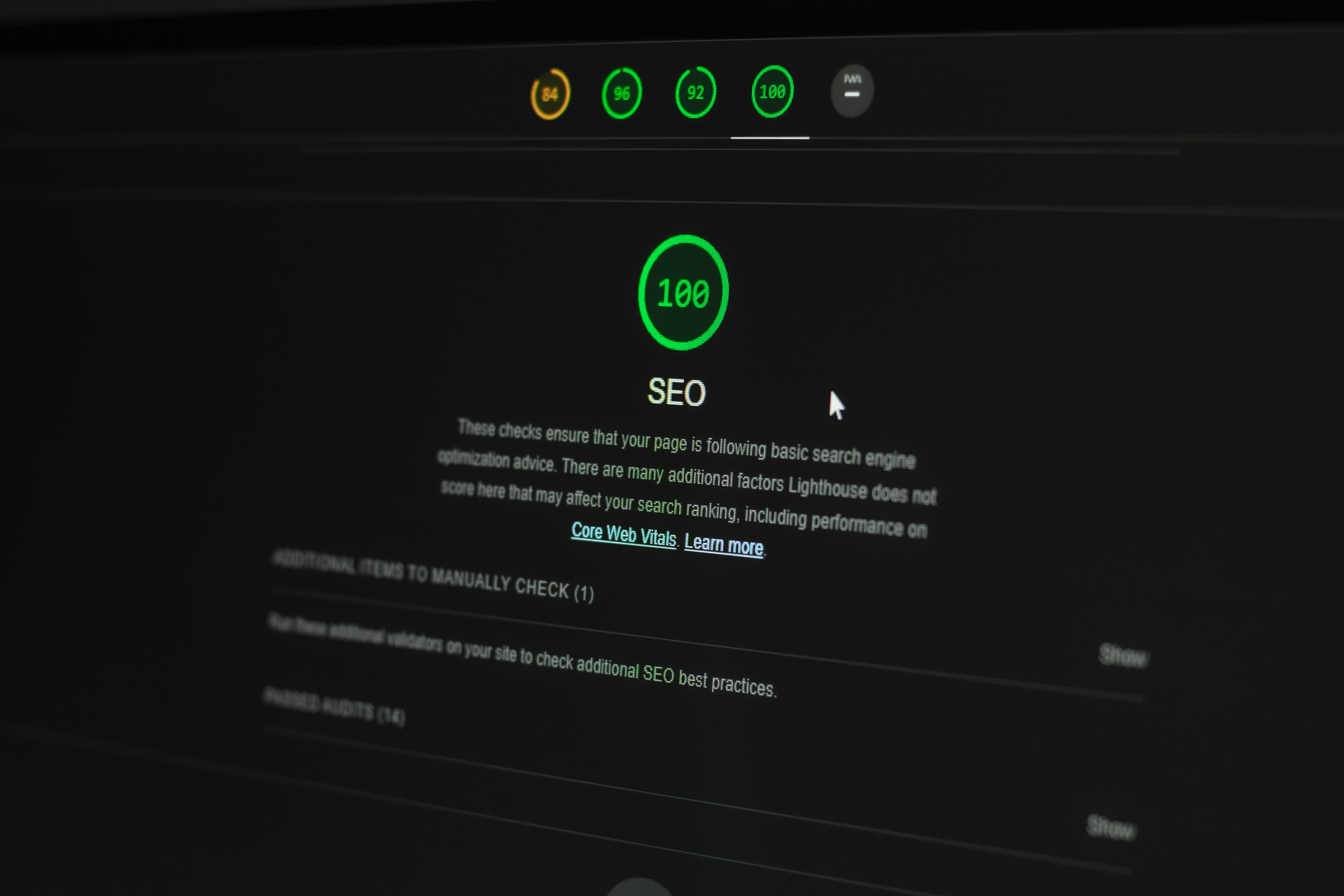
Introduction to AI in SEO
Search Engine Optimization (SEO) has undergone significant transformation over the years, evolving from simplistic keyword stuffing strategies to complex methodologies that prioritize user experience and content relevance. A notable catalyst in this evolution has been the integration of artificial intelligence (AI) technologies. As the digital landscape continues to advance, AI’s role in refining SEO practices has become increasingly prominent, driving more sophisticated approaches to search engine visibility.
AI encompasses various subfields, with machine learning, natural language processing (NLP), and data analytics at the forefront of SEO enhancements. Machine learning algorithms, for example, utilize vast amounts of data to identify patterns and trends, allowing businesses to tailor their content strategies more effectively. These algorithms analyze user behavior, which can guide the creation of more pertinent content that aligns with user intent—thus improving SERP rankings. Moreover, through continuous learning, these systems adapt to changes in user preferences and search engine algorithms, making SEO strategies more dynamic and responsive.
Natural language processing, another critical AI component, enables better understanding of user queries and context. This technology helps search engines process language nuances, such as synonyms and intent. Consequently, SEO practitioners can optimize their content not merely for keywords but for comprehensive topics that resonate with audiences. Additionally, data analytics driven by AI provides insights into performance metrics and user interactions, empowering businesses to refine their strategies and improve their conversions.
The fusion of AI in SEO exemplifies how technology reshapes practices across industries. As these tools become increasingly advanced, embracing AI is essential for businesses aiming to enhance their SEO performance and remain competitive in the digital marketplace.
Key AI Technologies Transforming SEO
Artificial Intelligence (AI) has ushered in a transformative era for Search Engine Optimization (SEO), significantly enhancing how businesses approach their online presence. Among the myriad of technologies driving this evolution, machine learning algorithms, natural language processing (NLP), and AI-based content generation tools stand at the forefront.
Machine learning algorithms are pivotal in analyzing vast amounts of data to predict user behavior and preferences. By scrutinizing user interactions and search patterns, these algorithms enable marketers to gain valuable insights into what drives clicks and conversions. The ability to process and interpret data at an unprecedented scale means that businesses can craft tailored SEO strategies that resonate with their target audience, ultimately leading to improved search engine rankings.
Natural Language Processing plays a critical role in elevating keyword research and understanding user intent. NLP enables search engines to index and rank content based not only on specific keywords but also on the context and semantics surrounding those terms. This technological advancement allows businesses to optimize their content more effectively by focusing on user queries, which enhances visibility and relevance in search results. By leveraging NLP, marketers can create content that directly addresses the needs and questions of their audience, thereby fostering a more engaging online experience.
Furthermore, AI-based content generation tools are revolutionizing how content is created and optimized. These tools utilize algorithms to generate high-quality, relevant content that adheres to SEO best practices. By automating routine content creation, businesses can save time and resources while ensuring that their websites regularly feature fresh material. Additionally, these tools often include built-in optimization features that aid in enhancing keyword density, improving readability, and increasing overall user engagement.
In conclusion, the integration of machine learning, natural language processing, and AI content generation tools significantly influences SEO strategies, offering businesses opportunities to enhance their online visibility and better serve their audiences.
Enhancements Brought by AI in SEO
The integration of Artificial Intelligence (AI) into Search Engine Optimization (SEO) has revolutionized digital marketing strategies, enhancing various facets of how websites are optimized for search. One significant improvement is in keyword targeting. Traditional methods often relied heavily on broad keyword usage, which could lead to inefficiencies. AI enables more refined keyword analysis by leveraging natural language processing (NLP) algorithms. These algorithms analyze search queries in context, allowing marketers to identify long-tail keywords and semantic variations that resonate better with users’ intentions, thereby improving search visibility.
Another critical enhancement involves user experience personalization. AI technologies, such as machine learning, can analyze user behavior data to customize content and recommendations uniquely tailored to individual visitors. By understanding user preferences and patterns, websites can adjust their offerings in real-time, leading to a more engaging and relevant experience for users. This personalization enhances user satisfaction and lowers bounce rates, contributing to better search rankings.
Additionally, AI fosters more accurate analytics. The traditional approach to measuring SEO success often focused on basic metrics such as keyword rankings and traffic volume. However, AI-driven analytics platforms provide deeper insights into user engagement, content effectiveness, and conversion rates. This data empowers marketers to make informed decisions and iterate on strategies effectively, ensuring continued alignment with search engine algorithms, which increasingly prioritize quality and relevance.
Incorporating AI into SEO processes not only streamlines these efforts but also promotes greater traffic flow to websites. By employing advanced technologies for keyword targeting, user experience personalization, and accurate analytics, businesses can create more effective and results-driven search strategies. As SEO continues to evolve, embracing AI will be key to staying competitive in an ever-changing digital landscape.
Factors Behind AI’s Impact on SEO
The integration of artificial intelligence (AI) into search engine optimization (SEO) is driven by several critical factors that fundamentally alter how content is created, ranked, and presented. One significant factor is the availability of data. The internet generates vast amounts of data daily, and AI systems leverage this data to derive insights about user behavior, preferences, and trends. By analyzing data patterns, AI empowers SEO professionals to make informed decisions, tailoring content to meet user needs effectively.
Another key factor is the advancements in algorithms utilized by search engines. Over the years, algorithms have evolved to become more sophisticated, primarily driven by AI and machine learning technologies. These advancements enhance search capabilities, allowing engines to understand content contextually rather than relying solely on keywords. For instance, algorithms like Google’s RankBrain and BERT utilize natural language processing (NLP) to interpret user queries more accurately, thereby improving the quality of search results. This shift necessitates a focus on creating high-quality, relevant content that addresses user intent, marking a departure from traditional SEO practices based on keyword density alone.
The growing reliance on voice search is another factor significantly shaped by AI’s impact on SEO. As more users adopt voice-activated devices for search queries, SEO strategies must adapt to conversational language and natural speech patterns. Voice search typically involves longer, more nuanced queries compared to textual searches, prompting SEO professionals to optimize content for these types of interactions. This not only diversifies content strategy but also opens avenues for targeting new user demographics that prefer voice communication over traditional text input.
Together, these factors underscore the evolving landscape of SEO influenced by artificial intelligence, suggesting that SEO practitioners must keep pace with these changes to remain competitive in the digital marketplace.
Challenges of Implementing AI in SEO
The integration of artificial intelligence (AI) into Search Engine Optimization (SEO) strategies holds promising advantages but also presents several challenges that businesses must navigate. One primary hurdle is the necessity for substantial amounts of data. AI technologies rely on extensive data sets to analyze trends and generate insights effectively. Without sufficient and high-quality data, the performance of AI-driven SEO tools can be significantly compromised. This situation necessitates the collection of comprehensive data, which can be time-consuming and resource-intensive for many organizations.
Additionally, the implementation of AI in SEO can incur high costs. Investing in advanced AI technologies, hiring skilled professionals, and training existing teams to leverage these tools effectively can become a considerable expense, particularly for small to medium-sized enterprises. These high initial costs might deter businesses from adopting AI solutions, limiting their ability to optimize their online presence in a competitive digital landscape.
Another challenge to consider is the complexity of AI tools themselves. While AI applications hold the potential to streamline SEO processes and provide valuable insights, they often require a level of expertise for setup and maintenance. This complexity may lead to a steep learning curve for organizations, hindering the efficient deployment of AI technologies in their SEO strategies. Organizations may benefit from investing in training programs or partnering with specialized firms to ease the transition and harness the potential of AI.
To overcome these challenges, businesses can adopt a phased approach to implementing AI in their SEO efforts. Starting with small-scale pilot projects can help organizations identify effective practices and gradually scale their AI initiatives. Moreover, fostering a culture of continuous learning around AI can empower teams to adapt to new technologies more effectively. By addressing these challenges head-on, businesses can maximize the potential benefits of integrating AI within their SEO strategies.
Case Studies: Successful AI Integration in SEO
Artificial Intelligence (AI) is increasingly becoming a driving force in the field of Search Engine Optimization (SEO), with numerous businesses adopting innovative AI tools to enhance their online visibility and performance. Several notable case studies exemplify the successful integration of AI in SEO strategies, showcasing the tangible benefits achieved through such implementations.
One exemplary case is that of a major e-commerce retailer that utilized AI-powered content generation tools to optimize product descriptions and blog posts. By employing natural language processing algorithms, the organization was able to create engaging and relevant content tailored to specific customer segments. As a result, the e-commerce platform noted a 30% increase in organic traffic and a 25% growth in conversion rates within just six months of implementing AI-driven content strategies.
Another compelling example comes from a leading travel agency that harnessed AI for predicting customer search behavior. By analyzing vast datasets to identify patterns and preferences, the agency was able to structure its keyword strategy more effectively. This involved using machine learning algorithms to identify long-tail keywords that potential travelers were likely to search for. In doing so, they observed a remarkable 40% increase in search rankings for targeted keywords and a significant uptick in customer engagement metrics.
Furthermore, a noteworthy case study in the healthcare sector involved a hospital network that implemented AI chatbots to improve user experience on their websites. The AI chatbot engaged with visitors by providing instant answers to common queries, directing users to relevant resources, and assisting in appointment scheduling. This not only improved patient experience but also positively impacted SEO efforts, as the increased dwell time on the site led to better search engine rankings. Ultimately, the hospital experienced a 50% decrease in bounce rates and improved local search visibility.
These case studies reflect the transformative impact of AI in optimizing SEO strategies across various industries. By harnessing the power of AI tools and techniques, businesses can significantly enhance their online presence, leading to measurable improvements in traffic and engagement metrics.
The Future of AI in SEO
As we look ahead, the role of artificial intelligence (AI) in search engine optimization (SEO) appears set to grow exponentially. AI technologies continue to advance rapidly, promising innovations that may significantly alter how businesses approach their online presence and visibility. One potential trend is the increasing deployment of AI algorithms that can analyze vast amounts of data to better understand user behavior and preferences. Such insights could lead to personalized search experiences, where results are tailored to individual users more effectively than ever before.
Another significant development could be the integration of natural language processing (NLP) in SEO strategies. As search engines become more adept at understanding context and semantics, marketers will need to shift their focus from traditional keyword optimization to creating content that engages and resonates with users. This implies that high-quality, informative content will gain even more importance as AI becomes better at determining the value of such resources. Consequently, the ability to create engaging and relevant content may be one of the core competencies for companies looking to succeed in the evolving SEO landscape.
The emergence of AI-driven tools for automating routine SEO tasks is another noteworthy trend. Tools that can conduct competitor analysis, keyword research, and even content recommendations based on AI analysis will likely become indispensable for marketers in the near future. This could empower smaller businesses to compete effectively with larger entities, leveling the playing field in digital marketing. However, this shift towards automation raises concerns about maintaining a human touch in SEO practices, making it essential for marketers to find a balance between leveraging AI and fostering genuine human connections.
In conclusion, the future of AI in SEO holds transformative potential. With advances in AI technologies, businesses will need to adapt their strategies to take advantage of these innovations and navigate the changing landscape effectively. Understanding AI’s evolving role will be critical for maintaining a competitive edge in digital marketing.
Ethical Considerations in AI-Driven SEO
The integration of artificial intelligence (AI) within search engine optimization (SEO) presents numerous ethical considerations that must be addressed to ensure responsible usage. One of the primary concerns is privacy. As AI algorithms process vast amounts of data to enhance SEO strategies, they often require access to personal information. This raises questions about how data is collected, stored, and utilized. Organizations must prioritize transparency and ensure compliance with data protection regulations, such as the General Data Protection Regulation (GDPR), to safeguard user privacy while leveraging AI capabilities.
Another significant ethical implication involves bias in algorithms. AI systems learn from data sets that may inadvertently contain biases, leading to skewed search results and reinforcing existing stereotypes. It is essential for developers to create diverse and representative datasets, as well as implement rigorous testing procedures to identify and mitigate algorithmic biases. By doing so, they can promote fairness and inclusivity within AI-driven SEO practices.
The impact of automation on jobs also warrants careful consideration. As AI technologies streamline SEO processes, there is a growing concern about their potential to replace human roles within the industry. While it is likely that AI will augment rather than completely substitute human effort, it is crucial for businesses to strike the right balance. This can be achieved by reskilling employees to work alongside AI tools, thus fostering a collaborative environment that values human creativity and judgment in conjunction with machine efficiency.
To navigate these ethical challenges effectively, organizations must establish clear guidelines and best practices for AI deployment within SEO. Emphasizing responsible technology use and prioritizing ethical standards will not only enhance operational effectiveness but also promote public trust in AI systems used in the SEO landscape.
Conclusion: Balancing AI and Human Insight in SEO
As we reflect on the evolving landscape of search engine optimization (SEO), it becomes clear that the role of artificial intelligence (AI) is increasingly significant. AI technologies, from machine learning algorithms to natural language processing, have enhanced how digital marketers approach SEO. These advancements allow for improved data analysis and content optimization, enabling SEO professionals to make more informed decisions. However, the integration of AI in SEO does not come without its challenges, which necessitate a careful balance between technology and human expertise.
While AI can efficiently process vast amounts of data and provide insights into user behavior and search trends, it lacks the nuanced understanding that human intuition brings. It is essential for SEO strategies to integrate AI capabilities to streamline processes and enhance performance while retaining human insight to maintain creativity and emotional connection in content creation. For instance, while AI can suggest keywords based on algorithmic trends, only a human can truly understand the context behind a topic, ensuring that content resonates with its intended audience.
The critical takeaway is that the future of SEO is not solely reliant on AI technology but rather on a symbiotic relationship between AI and human-driven insight. As businesses adopt AI tools to refine their strategies, it is vital to leverage the strengths of both human experience and AI efficiency. Doing so will not only optimize SEO performance but also foster content that remains relevant, engaging, and valuable to users. Embracing this balanced approach allows businesses to harness the power of AI while ensuring their SEO efforts are enriched by the depth and understanding that only human practitioners can provide.









